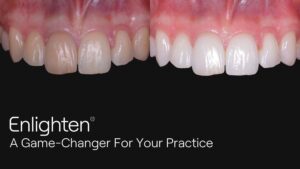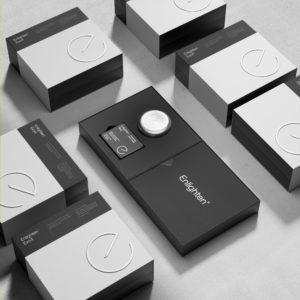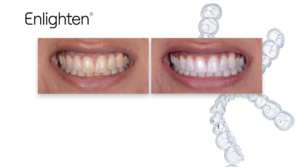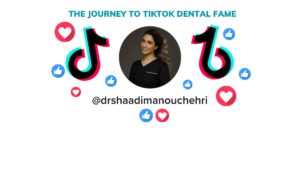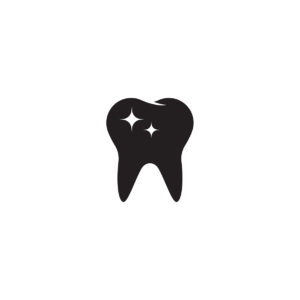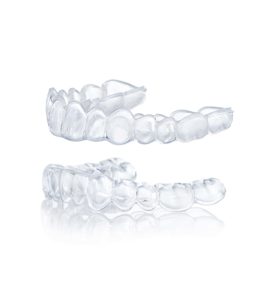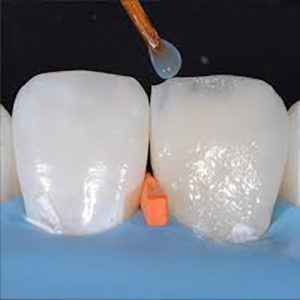Your guide to running a dental practice
Dental practice owner Dr. Nicholas Meixner shares his experience owning a practice and how he was able to develop it.
Have you ever thought about owning a dental practice? Ownership can give rise to challenges that you may not be able to predict from the outset. Today, we catch up with Dr. Nicholas Meixner to learn about how he manages his day to day workload running a practice and how he was able to expand it over the span of 18 months.
https://www.youtube.com/watch?v=SppQ2A3qA6U&feature=youtu.be
Dr. Payman Langroudi: We’re here at the BDA at Mini Smile Makeover, I’m here with Nick Meixner. You’ve got a practice in Stratford upon Avon and you also work in London, as well. What kind of practice is it in Stratford?
Dr. Nicholas Meixner: It’s a majority private practice. We have a very small NHS contract.
Dr. Payman Langroudi: How long have you had it?
Dr. Nicholas Meixner: 18 months.
Dr. Payman Langroudi: And how many dentists work there?
Dr. Nicholas Meixner: 4 in total at the moment.
Dr. Payman Langroudi: So are they four full time?
Dr. Nicholas Meixner: Part time, they all do part time.
Dr. Payman Langroudi: All generalists?
Dr. Payman Langroudi: The kind of work that you do, is it minimally invasive?
Dr. Nicholas Meixner: Yes, we try to keep it that way as much as we can, absolutely.
Dr. Payman Langroudi: So tell me your thought process before booking on a course like this. Were you thinking you need to improve your composites or what’s the story?
Dr. Nicholas Meixner: Well, I really enjoy composite anyway as a medium to improve the patient’s ascetics. It’s minimally invasive as well, which is always the best way forward. But it’s a good thing to offer to patients. A course like this allows you to improve what you’re already doing, essentially. I’ve actually done a restorative course.
Dr. Payman Langroudi: Where was that?
Dr. Nicholas Meixner: It was in Manchester, and it was very good, but it didn’t really offer much in terms of the aesthetic aspect.
Dr. Payman Langroudi: A more traditional approach?
Dr. Nicholas Meixner: Yeah, just general improvements and understanding materials which is important. But this allows you to form your own way of doing things and as you’re getting the aesthetic right when blending the margins in and in the polishing aspect etc.
Dr. Payman Langroudi: You’re 18 months into practice ownership. If someone else who’s an associate is thinking about opening or buying a practice, what are some of the pitfalls that you would suggest they look out for? What would you have done differently?
Dr. Nicholas Meixner: Loads of things. Staff is always a difficult area, so you have to build a really good team and that takes a very long time.
Dr. Payman Langroudi: What was it like culture-wise before, and what’s your goal now?
Dr. Nicholas Meixner: It’s all about patient journey and trying to get that sorted, whereas before it was getting no chatter at reception and getting a much more streamlined professional approach to things.
Dr. Payman Langroudi: So when you looked at the practice in the first place, were you thinking I can make improvements here?
Dr. Nicholas Meixner: Yeah, absolutely. We still are, we’re still doing receptions now, got surgeries to do up. We’re trying to get all things sorted out.
Dr. Payman Langroudi: So you saw something that was maybe valued a bit less, because it wasn’t fully explored. And then you thought, I can make more of this. That’s one approach. Another approach is to find something that’s already working well, and did you think of that?
Dr. Nicholas Meixner: Are you the type of person who buys a house and does it up.
Dr. Nicholas Meixner: No. It simply came up because my uncle was doing the practice. So we basically bought it off him. It was good, it’s a great practice, loads of really good patient base, lots of good will, good reputation. Then it was all about developing that and building upon it like a new thing for modern day. It just takes a lot of effort and work.
Dr. Payman Langroudi: What do you think is the best thing about the course?
Dr. Nicholas Meixner: Lots of things. I wanted to work with a good network of people and see what’s going on. Also, anything is good to improve your skills. You don’t often get time… you think you would. You’re always improving things as work on every single patient. But having a similar sit down and go through everything with you and say, look, this is where you’re probably going wrong; that’s really helpful. It’s good to get that kind of practice as well.
Dr. Payman Langroudi: Are there some treatments that you’ve introduced in the practice that weren’t there before?
Dr. Nicholas Meixner: Yeah, Absolutely. So just simple things like talking to patients and offering them a bit more in terms of what can be done with minimally invasive dentistry.
Dr. Payman Langroudi: Are you doing ortho as well?
Dr. Nicholas Meixner: Yeah, my wife does the ortho. But on Monday, for example, I’ve got a mid-line Diastema closure (it’s one of reasons why I was so keen to do this course as well) which I’ve done previously, but it’s nice to be able to look forward to doing it again and offer it even better than I did before.
Dr. Payman Langroudi: How do you find working with your wife?
Dr. Nicholas Meixner: Really good, she’s a really good dentist, but she does a lot more of the management side, whereas I’m just a dentist; I enjoy what I do and I love it.
Dr. Payman Langroudi: So she handles the staff, the rotas, all of that?
Dr. Nicholas Meixner: Yeah, she’s really good at it.
Dr. Payman Langroudi: The stock?
Dr. Nicholas Meixner: I think the nurses do the stock, but yes, she oversees it all.
Dr. Payman Langroudi: Tell me about Dipesh, do you like his teaching style?
Dr. Nicholas Meixner: Yeah, he’s very honest and he teaches off his mistakes, which is another really good thing, as well. He shows where he went wrong, which I think is very important because it makes us feel like ‘normal dentists’ and that we all make mistakes, and it’s important to learn from them.
Dr. Payman Langroudi: People say that sometimes with a lecturer, they feel like he’s at this level that “I’m never going to be there”. I always think it is important to bear in mind, he’s 7,8 years out of dental school. There’s a journey that anyone can go on.
Dr. Nicholas Meixner: I think it’s one of those things where if you focus on your niche and you like it and are good at it, it’s good to develop that aspect. Also, what I like is his methodology. Once you get the methodology right you can get quite close to that in a controlled, reliable way.
Dr. Payman Langroudi: How many years ago did you qualify?
Dr. Nicholas Meixner: 6 years ago.
Dr. Payman Langroudi: From where?
Dr. Nicholas Meixner: From Kings.
Dr. Payman Langroudi: If you were talking to someone who has just qualified as a dentist, what would be 3 key things you would advise?
Dr. Nicholas Meixner: First, make mistakes. Unfortunately, whilst it’s quite scary to make them, you’ve got to sit down and learn learn from them, don’t always get so worried about them. The second thing is have the goals. I had lots of goals and it just changed every year.
Dr. Payman Langroudi: Are you good at that? Do you set goals and aim at them?
Dr. Nicholas Meixner: I’m trying to be. I think it’s good to have things we want to aim for, but it just changes so much you can’t predict the future. Sometimes you’ll start doing a course and all of a sudden it’ll change and you might find that you want to do something else. So being flexible in that is very important. Always being patient-centered is the best thing. For example, where I work, it’s quite an older generation that’s there so implants is probably what I’m going to be looking at. But actually, I really enjoy this, but I’m still doing this and I’ll probably look at doing that in the future. So you’ve got to do what you enjoy, but also what is in the best interests of your patients.
Dr. Payman Langroudi: Have you got like a 10 year goal? What do you reckon going forward? Are we looking at multiple practices?
Dr. Nicholas Meixner: I’d like to think multiple practices. Based on where we are in the countryside, I think a large hub probably would’t work. So multiple practices would be ideal. Also, I want to be very good at what I do, and that’s the reason why I do dentistry, essentially. There’s no point in doing something half-heartedly. I’d like to be, probably not specialist, but certainly heading towards that way.
Dr. Payman Langroudi: Why did you set up there? Are you from Stratford?
Dr. Nicholas Meixner: Yeah, I’m from Birmingham originally.
Dr. Payman Langroudi: Was it a case of somewhere near where you live? Or do you live now near where you practice?
Dr. Nicholas Meixner: I associate in London and my uncle basically turned around and said to me: if you ever think you’re selling it, I would be interested. He was like, “yeah, okay”. That was it.
Dr. Payman Langroudi: Was he partly responsible for you choosing dentistry?
Dr. Nicholas Meixner: Well, yes, obviously. But the person that actually got me into dentistry was (my dad’s a dentist as well) a college of my dad who was doing implants. He did a course which he allowed me to go on for free. A patient came in, had all his teeth taken out and implants placed and walked out with a big smile.It was amazing, it completely transformed her life, and that’s what got me into it.
Dr. Payman Langroudi: Coming from a family of dentist, (Dipesh comes from a family of dentists, too; both of his brothers are in dentistry) do you think you had a head start compared to someone who’s not from a family? I wasn’t from a family of dentists. I have an uncle somewhere who’s a dentist, but do you think it had some sort of angle that somebody wouldn’t have had?
Dr. Nicholas Meixner: Kind of, I probably would say more of an understanding of dentistry is, but those things change massively. My my approach dentistry is very different to my dad’s. Both are right, there’s no wrong answer in terms of it.
Dr. Payman Langroudi: I think this patient centric thing you were saying didn’t used exist back then.
Dr. Nicholas Meixner: I think it did, but in different way. I think we underwrite the fact that how good the old dentists, because a lot of that stuff is still working. It’s only the new generation where we’re saying that actually this perhaps isn’t right, but only after like 20 years it’s been there for. So I think we were quite quick to underwrite that. There’s been some roundabouts, but I think the old dentists are very good at fostering that patient care and the conversation and making it about the patient, I think unfortunately, sometimes it can feel these days that patients come in like a conveyor belt. I think we have to move more to making the patient feel that they have a relationship with the dentist. And I think that’s what the old dentists are very good at.
Dr. Payman Langroudi: What’s your favorite thing about being a dentist?
Dr. Nicholas Meixner: Quite a lot of things, actually. I enjoy the work. Doing things with my hands and making things better, I have to say that is something I really enjoy, it gives a lot of satisfaction. Taking out teeth is quite good fun, that challenge of getting it out, we all know that feeling. But also having that relationship with patients, and when they say: “I don’t want to go anywhere else” or “thanks so much for doing that for me”, that’s what’s very nice.
Dr. Payman Langroudi: I gave up dentistry seven, eight years ago.
Dr. Nicholas Meixner: Do you miss it?
Dr. Payman Langroudi: I miss people, I don’t miss teeth. I did miss teeth to start with. But now as 8 years have gone by, I no longer miss teeth. As a dentist you don’t realise how many people you know, but now I see the same 15 people every day. Whereas before I was seeing 15 people per day.
Dr. Nicholas Meixner: That’s what it’s about isn’t it? We’re here to help people, ultimately. Also, it’s amazing how many people we do see that you start going on off topic with quite massively with. You’re here to talk about teeth, but you end up talking about their families and if they’ve lost someone etc. Because it all relates.
Dr. Payman Langroudi: In a small town, good news travels fast, but you also have the opposite effect, as well? Is it a double edged sword?
Dr. Nicholas Meixner: Possibly. We’re still relatively new to it and it is always factor that you have to consider.
Dr. Payman Langroudi: But it’s so huge to make everyone happy. I’d worry more in a small town than in a big town.
Dr. Nicholas Meixner: Yeah, I’ve noticed the pressure more so now. I’m much more critical of how I work and I feel like because I am principal, technically, you do put a lot more pressure on yourself to make sure it works. It’s slowly getting better and little bit more relaxing. And you’ve got to learn to trust patients, as well. We always say dentist-stress is a big deal, they’ve got to trust us, but you’ve got to learn to trust your patients.
Dr. Payman Langroudi: Listen to them.
Dr. Nicholas Meixner: Yeah, absolutely. So it’s just kind of like a jelling period; just takes time.
Dr. Payman Langroudi: I won’t take any more of your time and enjoy the rest of the course.
Dr. Nicholas Meixner: My pleasure, thank you very much.
› DIG DEEPER ‹

» eBooks
Read up on the 6 tips that will perfect your anterior resin restorations here.
And to discover how you can achieve the aesthetic results you want when doing a single veneer with a single shade of composite, click here.
» Websites
If you want to learn more about the 2-day hands-on anterior composite masterclass with Dr Dipesh Parmar, click here.

» Training
To become an Enlighten Whitening Expert and get CPD certified for free hit the button below to take our hour-long online training.
» eBooks
Learn how to dramatically increase the number of whitening treatments you do here.
» Websites
Or if you’re interested in knowing more about the Enlighten Teeth Whitening System, then give it a click right here.
» Podcast
Learn how to emulate the success of the movers and shakers in the dental industry from their own mouths, featuring the nuggets of knowledge from likes of Simon Chard, Andrew Moore, Tif Qureshi, Mark Hughes and many more.




